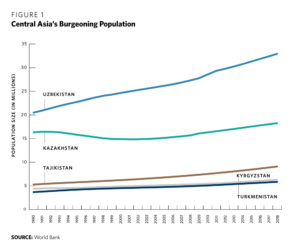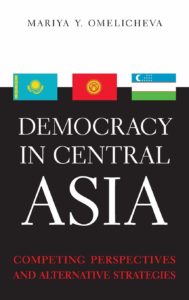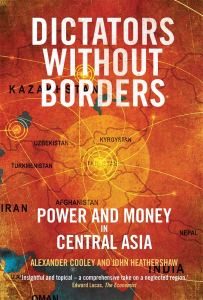
Carnegie’s Russia and Eurasia Program
Central Asia is undergoing a dramatic transformation. Its governments face legitimacy crises at a time when long-standing leaders are being replaced by little-known, untested ones. Social contracts, by which citizens traded political freedoms for improved economic conditions and stability, are collapsing under the weight of growing socioeconomic distress, according to Paul Stronski, a senior fellow in Carnegie’s Russia and Eurasia Program, and Russell Zanca, a professor of anthropology at Northeastern Illinois University and an associate of the University of Chicago’s Center for Eurasian, Russian and East European Studies.
Almost thirty years after the dissolution of the Soviet Union, Central Asia’s entrenched kleptocracies that sustained the region’s post-Soviet regimes for decades are proving unable to address the growing needs of rapidly expanding populations. Surprised by growing social activism, Central Asian regimes appear paralyzed. Instead of seeing their mobilized citizens as partners to engage and support, the region’s governments see them as potential threats. As these social, political, and economic changes play out, six important trends stand out, they contend:
- MAKINGS OF A YOUTH SURGE: Memories of the Soviet era are declining as the post-Soviet generation reaches adulthood. The region is in the midst of rapid population growth….

- UNWIELDLY BRAND OF NATIONALISM: Members of this younger generation are far less content with the status quo, less friendly toward Russia, and less trusting of Soviet-era elites than their parents are. This is a problem for governments run by leaders with lingering Soviet-style mind-sets and habits…
- THORNY MIGRATION PROBLEMS: Many Central Asians are on the move in search of jobs and educational opportunities. Most of the region’s economies depend on remittances sent back by migrant laborers..
- DEMANDS FOR EFFECTIVE GOVERNANCE: Democracy is important to the people of Central Asia, but their notions of democracy are different from American ones. Far more than the desire for political parties, free elections, or an independent parliament, Central Asia’s budding social activism is motivated by the desire for transparent and accountable government, even if it is not fully democratic. Central Asians want governments that are capable of improving their quality of life, providing essential social services, and helping lessen the gap between rich and poor. ….
- STRUGGLE TO PRESERVE STATUS QUO: Given its continued Soviet-style political mentalities, Central Asia is unlikely to build European-style social democratic systems in the near future. All five countries are mired in economic stagnation or worse….
- RISING TIDE OF SOCIAL ACTIVISM? Kazakhstan now is on the forefront of Central Asian social activism and protests. Growing disenchantment with the government, as evidenced by 2019 protests, reflect the people’s frustration with a state that has come a long way but now struggles to deliver the brighter future it promised…
 But in her 2015 book “Democracy in Central Asia,” Mariya Omelicheva, an associate professor at the University of Kansas, argues that Central Asia’s strongmen survive because their populations support them, notes Celestine Bohlen, a former New York Times Moscow correspondent who covered the collapse of the Soviet Union in the 1990s. “Central Asian citizens perceive democracy as an empty ideological framework or a recipe for mayhem,” she said in a 2015 interview with The Diplomat:
But in her 2015 book “Democracy in Central Asia,” Mariya Omelicheva, an associate professor at the University of Kansas, argues that Central Asia’s strongmen survive because their populations support them, notes Celestine Bohlen, a former New York Times Moscow correspondent who covered the collapse of the Soviet Union in the 1990s. “Central Asian citizens perceive democracy as an empty ideological framework or a recipe for mayhem,” she said in a 2015 interview with The Diplomat:
She argued that Western efforts to promote democracy in the region had failed because they were frequently accompanied by “moral posturing,” “political demonizing” and “finger-pointing,” which only backfire. “Funding the organization of free and fair elections in societies that lack independent media, civil society networks and free speech will not only result in the waste of resources, but also invalidate democracy,” she said.
 Weak, corrupt, and politically unstable, the Central Asian Republics are frequently dismissed as isolated and irrelevant to the outside world. Yet Central Asia’s international activities are mostly hidden from view, allowing sophisticated, transnational corruption to largely go unnoticed, But Alexander Cooley and John Heathershaw argue in Dictators Without Borders. Central Asia is in reality a globalization leader with business networks, elite bank accounts, overseas courts, third-party brokers, and Western lawyers connecting Central Asia’s supposedly isolated leaders with global power centers, Cooley told a forum at the National Endowment for Democracy.
Weak, corrupt, and politically unstable, the Central Asian Republics are frequently dismissed as isolated and irrelevant to the outside world. Yet Central Asia’s international activities are mostly hidden from view, allowing sophisticated, transnational corruption to largely go unnoticed, But Alexander Cooley and John Heathershaw argue in Dictators Without Borders. Central Asia is in reality a globalization leader with business networks, elite bank accounts, overseas courts, third-party brokers, and Western lawyers connecting Central Asia’s supposedly isolated leaders with global power centers, Cooley told a forum at the National Endowment for Democracy.
“It is not yet clear whether Central Asia’s political elites can recognize societal change, adapt, or meet their citizens at least halfway,” Stronski and Zanca conclude. “In the meantime, the countries of the region are continuing to undergo dizzying demographic shifts, as their economies struggle to keep up with rapid population growth and social change. Central Asians’ heightened demands for better governance will likely only increase the pressures under which regional governments operate.” RTWT







